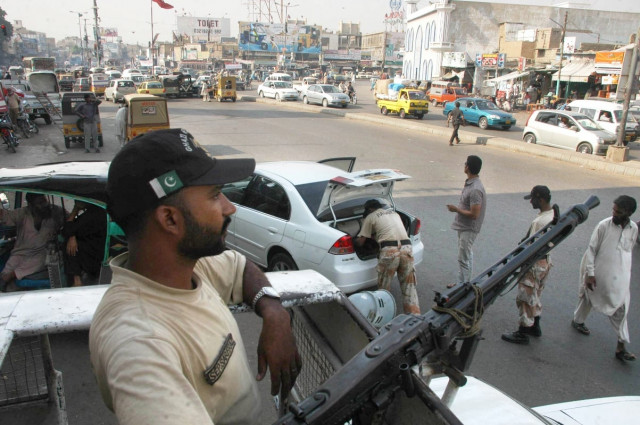Violence in Karachi delays BISP survey launch
Programme to identify more beneficiaries postponed for indefinite period due to situation in Karachi.

The BISP, one of the largest initiatives of the government against poverty, has the third largest share in the federal government’s budget. At Rs50 billion for this year, the project stands just below defence and international debt allocations.
However, according to DG Sindh Tufail Ahmed Jumani, most of this money has not been used efficiently. A lot of it just goes back in the government’s pocket because the rightful beneficiaries are not identified, he said.
Talking to The Express Tribune, Jumani said that the BISP attracted the attention of the World Bank (WB) in early January 2009. Finding it a good initiative against poverty, the WB promised to help out by funding the survey to identify beneficiaries.
Started in 2008, initially the BISP forms to register as a beneficiary were given to provincial governments. However, in April 2009, following allegations of corruption, the listing of families via parliamentarians was stopped and it was decided that further expansion in the net of beneficiaries will be done after proper surveys. By then the number of beneficiaries was 2.7 million.
A test phase of this survey was run earlier this year in which three districts of each province were surveyed. After this the count of beneficiaries rose to 3 million. Currently, BISP is providing Rs1,000 a month to these 3 million beneficiaries, mostly female, who fall below the poverty line, which is defined by the government through their ‘score cards’. These cards inquire, and mark, things that people have or lack.
Rashid Mehmood, district team leader of South Karachi, told The Express Tribune that the poverty score cards that cover detailed information about each household and its income will be of great help for other social activities of the government as well as other donor agencies.
He said that a team of 28 people will go to every union council. The people on these teams have been especially trained to extract accurate information from potential beneficiaries.
The districts chosen in Sindh were Mirpurkhas, Sukkur and Tharparkar, while the remaining 20 districts will be covered soon. The survey exercises, that employ NGO workers, are supervised by the WB and will be completed in six to seven months in Sindh, including Karachi, said Jumani.
At present, the BISP programme has three projects under it, namely the Waseela-e-Haq, Waseela-e-Rozgar and Waseela-e-Sehat programmes. They can be seen as further means of helping the BISP beneficiaries already identified.
Around 800 women are chosen through balloting and given Rs0.3 million under the Waseela-e-Haq programme every month.
Meanwhile, any of the BISP beneficiaries can approach the Waseela-e-Rozgar and ask them to help a member of their family who wants a job. The programme provides free vocational training and also helps them get jobs.
The Waseela-e-Sehat programme is similar to health insurance. BISP beneficiaries can get up to Rs25,000 a month for medical problems.
Boasting about the transparency of the programmes, Juman said that it’s absolutely fair and the surveys will make it further clear.
Published in The Express Tribune, October 21st, 2010.



















COMMENTS
Comments are moderated and generally will be posted if they are on-topic and not abusive.
For more information, please see our Comments FAQ